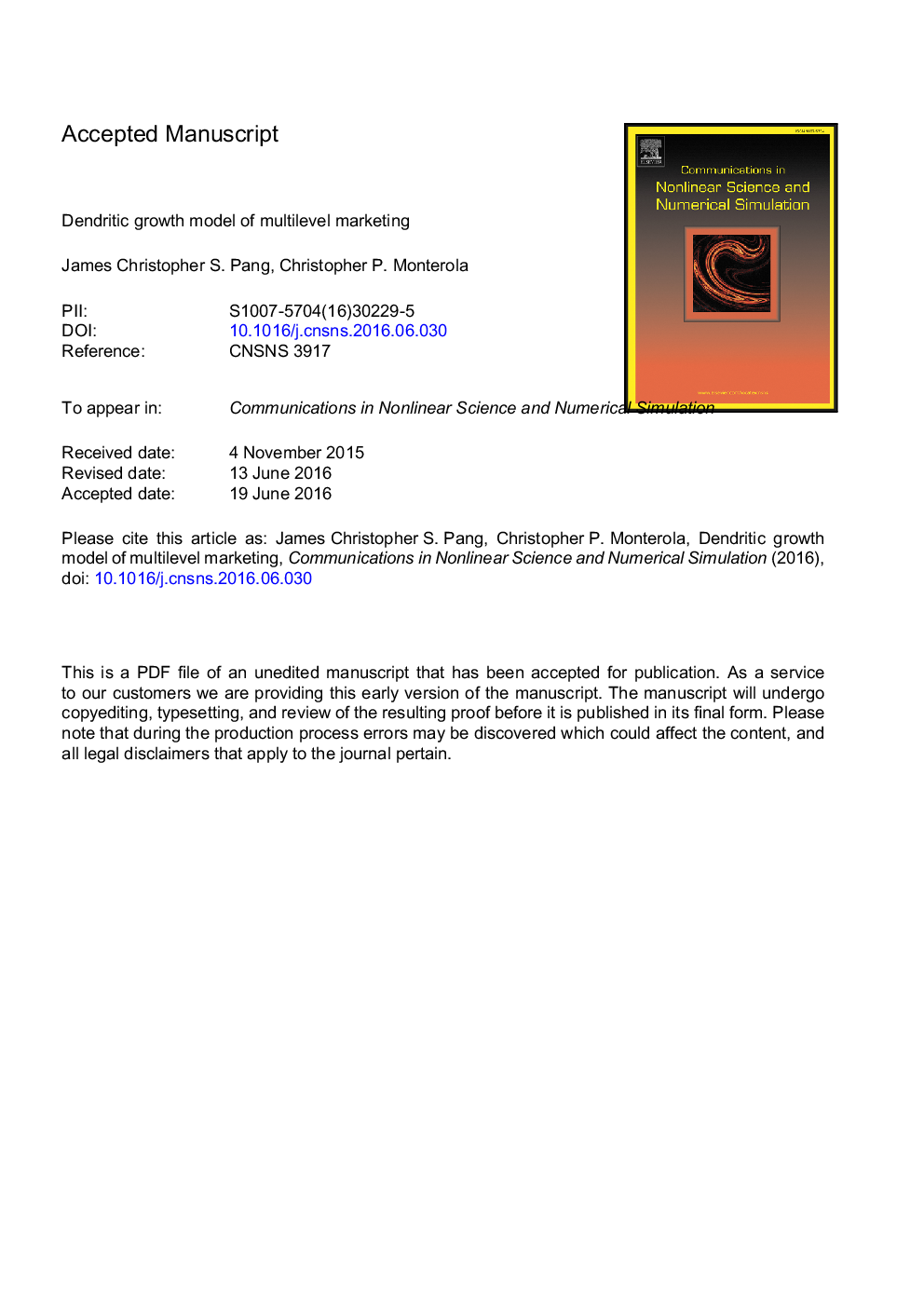| Article ID | Journal | Published Year | Pages | File Type |
|---|---|---|---|---|
| 7155043 | Communications in Nonlinear Science and Numerical Simulation | 2017 | 24 Pages |
Abstract
Biologically inspired dendritic network growth is utilized to model the evolving connections of a multilevel marketing (MLM) enterprise. Starting from agents at random spatial locations, a network is formed by minimizing a distance cost function controlled by a parameter, termed the balancing factor bf, that weighs the wiring and the path length costs of connection. The paradigm is compared to an actual MLM membership data and is shown to be successful in statistically capturing the membership distribution, better than the previously reported agent based preferential attachment or analytic branching process models. Moreover, it recovers the known empirical statistics of previously studied MLM, specifically: (i) a membership distribution characterized by the existence of peak levels indicating limited growth, and (ii) an income distribution obeying the 80â20 Pareto principle. Extensive types of income distributions from uniform to Pareto to a “winner-take-all” kind are also modeled by varying bf. Finally, the robustness of our dendritic growth paradigm to random agent removals is explored and its implications to MLM income distributions are discussed.
Keywords
Related Topics
Physical Sciences and Engineering
Engineering
Mechanical Engineering
Authors
James Christopher S. Pang, Christopher P. Monterola,
